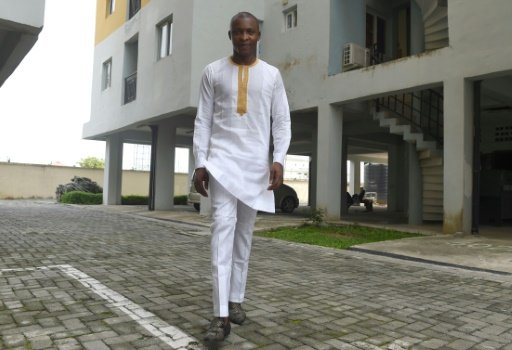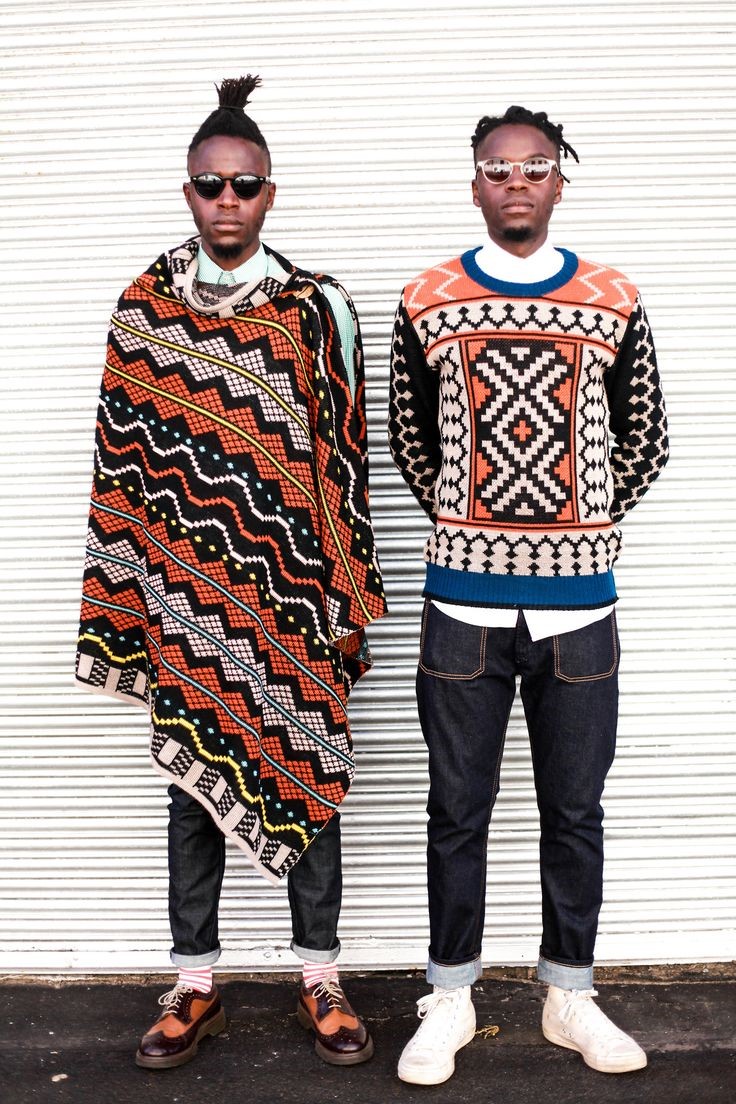아프리카뉴스 | 아프리카의 패션 중심지, 라고스에서, ‘전통은 멋 이다.
페이지 정보
작성자 G파운데이션 작성일17-06-26 16:04 조회25,099회 댓글0건본문

[지파운데이션] 아프리카의 패션 중심지, 라고스에서, ‘전통은 멋 이다.
Leggy dancers in tight shorts, bottles of Moet champagne and flashy cars feature in Nigerian pop icon Wizkid’s bling-bling music videos. But the singer himself has now swapped the Versace T-shirts and low-slung jeans that show his underwear for traditional African dress — a new youth trend in fashion hub Lagos.
나이지리아의 팝 아이콘인 위즈키드의 블링블링 뮤직비디오에는 꽉 맞는 반바지를 입은 Leggy 댄서들, Moet 샴페인 그리고 화려한 자동차들이 등장한다. 하지만 그 가수는 베르사체 티셔츠와 아프리카 전통의 의상인 속옷을 보이게 바지를 아래로 입으며 패션 중심지인 Lagos에 새로운 젊은 트렌드를 바꿔놨다.
Last year, Vogue voted Wizkid “Nigeria’s best-dressed pop singer”, a particularly coveted and prestigious title in a country where appearance is all important and competition is fierce.
지난 해, 보그 (Vogue)는 위즈키드를 “나이지리아의 옷 제일 잘 입는 인기가수”로 뽑았다. 이것은 외모가 중요하고 경쟁이 치열한 나라에서 탐내고 명성 있는 타이틀이다.
Clothing that used to be considered only for the old or for people out in the provinces is setting the trend in fashion, from the Yoruba agbada, a large, triple-layered robe worn in the southwest, to the Igbo “Niger Delta” embroidered collarless shirt from the south, and the northern Hausa babariga, a long tunic worn with an embroidered asymmetrical hat.
남서쪽에서 입던 큰, 세겹짜리 가운인 요루바 (Yoruba)부터, 서쪽의 Niger Delta 지역의 Igbo족이 수 놓은 깃 없는 셔츠, 그리고 북쪽의 Hausa babariga가 입는 긴 튜닉의 옷과 수 놓아진 비대칭 모자까지 노인이나 지방에 사는 사람들에게만 고려되었던 옷들이 유행을 선도하고 있다.
In recent years, this traditional clothing — or “trad” as it’s dubbed — can be seen in offices as well as nightclubs, and at weddings and business meetings.
“It’s the in-thing now,” Wizkid told Vogue magazine.
요즘은 이 전통의상들을 사무실, 나이트클럽, 그리고 결혼식장에서나 업무 회의에서 볼 수 있다. “요즘 추세입니다.” 위즈키드가 보그 잡지사에 말했다.

“When I’m back home, all I wear is African fabrics. I get material from different parts of Nigeria — north, west, south — and I mix it up,” said the 26-year-old superstar. Lack of space in Lagos, a sprawling megacity of 20 million inhabitants, has meant there are few shopping centers and ready-to-wear clothing stores are hard to find.
“집으로 돌아오면 아프리칸 섬유로 만든 옷만 입어요. 나이지리아의 북, 서, 남쪽에서 각기 다른 천을 받아서 섞어요.” 26살의 슈퍼스타가 말했다. 2천만명이 넘는 주민들이 옹기종기 살고 있는 Lagos는 공간이 부족해서 쇼핑몰도 많이 없고, 만들어진 옷을 파는 가게는 찾기 힘들다.
Economic recession and the free fall of the naira currency has put paid to wealthy Nigerians’ shopping sprees in Dubai, Paris and Milan. Instead, they’ve had to make do with what’s on offer locally, sending the popularity of roadside tailors soaring.
경기 불황과 나이라 통화 (나이지리아의 화폐 단위)의 하락은 부유한 나이지리아 사람들의 두바이, 파리, 밀란에서의 쇼핑 계획을 좌절시켰다. 대신, 그들은 현지에서 제공되는 것으로 견뎌야 했고 이로 인해 길가 재단사들의 인기가 급상승 했다.
‘Trad is swag’
‘전통은 멋이다’
In 2012, Omobolaji Ademosu, known as B.J., left his job in a bank to set up his own line of men’s clothing, Pro7ven. In two tiny workshops in Ojodu, on the outskirts of Lagos, his dozen employees cut, sew and iron a series of orders to the sound of a diesel generator.
2012년, B.J.로 알려진 오모보라지 아데모수 (Omobolaji Ademosu)씨는 자신만의 남성 의류, Pro7ven을 만들기 위해 그가 일하던 은행을 떠났다. 라고스의 변두리에 위치한 오조두에 두개의 작업실에선, 디젤 발전기 소리에 맞춰 여러 명의 직원들이 들어온 주문을 제작하기 위해 자르고 바느질을 하고 다림질 한다.
B.J. calls his style “African contemporary”. His work includes magnificent made-to-measure agbadas with embroidered collars, which can sell for up to 150,000 naira ($475, 420 euros) each.
B.J.는 그의 스타일을 “현대 아프리카” 라고 부른다. 그의 작품에는 웅장하게 주문 제작되는 수 놓은 옷깃이 달린 agbadas가 포함되있고, 이것은 한 벌당 최대 150,000 나이라 (475,420 유로)에 팔린다.
“Trad is swag,” smiled B.J.
“전통은 멋 입니다.” B.J.가 미소 지었다.
“Any day, I can switch from Yoruba to Igbo to Fulani, I’m rocking it! It’s the Lagos spirit, there is no barrier, we are one.” When attending professional meetings in business and politics, dressing in the ethnic outfit of your host is a sign of respect that can really pay off — or at least win big contracts.
“어느 날이든 저는 요루바 (Yoruba)에서 이그보 (Igbo)로 그리고 풀라니 (Fulani)로 바꿀 수 있습니다. 이건 장벽 없는, 하나로 뭉친 라고스의 정신입니다. 비지니스와 정치적인 전문적인 만남에 참석 할 때, 주최자의 민족 전통적인 의상을 입는 것은 경의를 표하기 의한 존경의 표시로, 적어도 큰 계약을 따내는 등, 성과를 올리는데 한 몫 할 수 있다.
Nigerian President Muhammadu Buhari’s election campaign in 2015, for example, featured him in a variety of traditional outfits from across the country. With more than 500 ethnic groups, Nigeria is able to draw from a huge catalogue of fabrics, styles and jewellery.
예를 들어, 나이지리아의 대통령, 무하마두 부하리 (Muhammadu Buhari)는 2015년 그의 선거 운동 동안 전국 각지의 다양한 전통 의상을 입었다. 500개 이상의 인종 집단으로 이루어진 나이지리아는 다양한 종류의 섬유, 스타일, 그리고 장신구들을 생산할 수 있다.
The beauty of each ethnic look is a source of pride, which has begun to extend beyond Nigeria’s borders. In early May, Mbuyiseni Ndlozi, a spokesman for South Africa’s Economic Freedom Fighters party, posted a picture of himself on Instagram, dressed in a dark “Niger Delta” outfit, complete with wide-brimmed hat and gemstone necklace.
각 종족의 아름다움은 나이지리아의 국경 너머로 뻗어 나가기 시작한 자부심의 원천이다. 5월 초, 남아프리카의 South Africa’s Economic Freedom Fighters 단체의 대변인 Mbuyiseni Ndlozi씨는 자신이 어두운 “Niger Delta” 옷과 챙이 넓은 모자와 원석 목걸이를 하고 찍은 사진을 그의 인스타그램에 올렸다.
His numerous and enthusiastic female fans were quick to comment with emoji hearts, affectionately calling him “Igwe” — an Igbo prince.
그의 수많은 열광적인 여성 팬들은 댓글에 하트 이모티콘을 남기며 그를 Igwe (Igbo의 왕자)라고 불렀다.
– Retained ‘African pride’ –

사진출처: Pinterest
“Even in Paris, young people from the diaspora want to present themselves as African princes now,” said Nelly Wandji, owner of MoonLook, an African fashion boutique in the upmarket Rue du Faubourg St-Honore. “Nigeria is clearly the leader in fashion in terms of style, creativity and number of recognised designers,” she said on a recent visit to Lagos.
“파리에서도 디아스포라의 젊은 사람들은 그들이 아프리카 왕자처럼 보이기를 원합니다.” 라고 고급시장거리의 Rue du Faubourg St-Honore에서 아프리카 패션 전문점인 Moonlook을 운영하고 있는 넬리 완지 (Nelly Wandji)씨가 말했다. 그녀는 최근 방문한 라고스에 대해 “나이지리아는 스타일, 독창성, 그리고 인정받는 디자이너 수에 있어서 패션계의 선두주자임에 틀림 없다” 라고 덧붙였다.
“Lagos Fashion Week has dethroned Johannesburg. Nigerians have remained much more authentic, they have retained ‘African pride’, whereas South Africa is very Europeanised.” Wandji, who is French of Cameroonian heritage, said the fashion trend was due to the African diaspora, of which Nigerians were the main ambassadors by sheer weight of numbers.
“라고스 패션위크는 요하네스버그를 탈퇴했다. 나이지리아는 훨씬 더 보수적이며 고급스러운 (어센틱) 모습을 유지하고 있으며, ‘아프리카의 자존심’을 유지하고 있다. 반면에 남아프리카는 유럽화 되어가고 있다.
카메룬 출신의 프랑스인 완지(Wandji)는 이 패션 유행은 아프리카 디아스포라의 영향이며, 그 중 나이지리아 사람들이 수적으로 우세하고 그들이 주요 대사라고 말했다.
“Young people from the diaspora are the drivers of African fashion, they have reappropriated their culture and made it trendy because it’s seen in Europe or the United States,” she said. Gloria Odiaka, a petite woman in her 50s, is the successful owner of a luxury traditional fabric shop in Lekki, a well-heeled Lagos neighbourhood.
“식민지 출신의 젊은 사람들이 아프리카 패션의 원동력이 되었습니다. 그들은 문화를 재창조 하여 유행시켰고, 그 유행은 미국이나 유럽에서 볼 수 있습니다.” 완지씨가 말했다.
50대의 아담한 여성 글로리아 오디아카는 라고스 인근에 있는 한 부유층 동네인 레키에 전통 천/섬유 가게의 성공적인 소유주이다.
“The young generation are into native wear and they look gorgeous,” she said. “My sons study in Canada and when I go visit them they say, ‘Please, Mommy, buy us some trads, I’m done with Canadian T-shirts’,” she said with a laugh.
그녀는 “젊은 세대들이 현지의 옷을 많이 입고 다닌다. 아름답고 보기 좋다.” 라고 말했다.
“저희 아들들은 캐나다에서 공부 하고 있는데 아이들을 보러 가면 ‘어머니 제발, 우리 전통 옷 좀 사주세요, 캐나다 옷은 그만 입고 싶어요’” 라고 얘기 한다며 웃으며 덧붙였다.
기사 원문: https://www.capitalfm.co.ke/lifestyle/2017/06/14/africas-fashion-capital-lagos-trad-swag/
번역: 지파운데이션 번역 서포터즈 김유리

